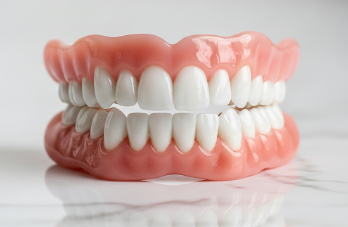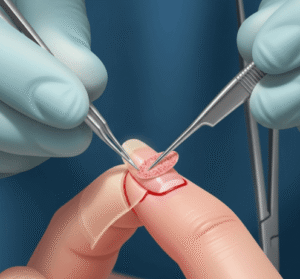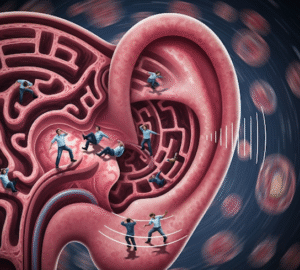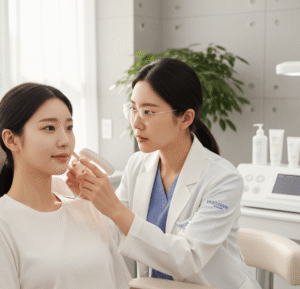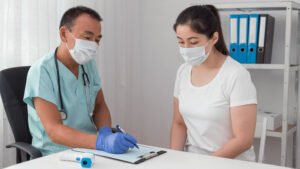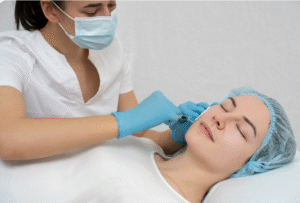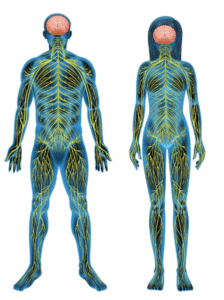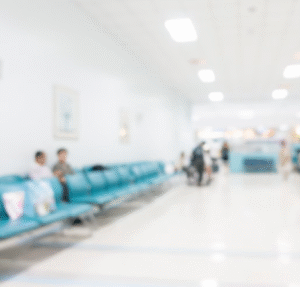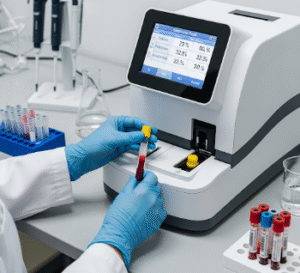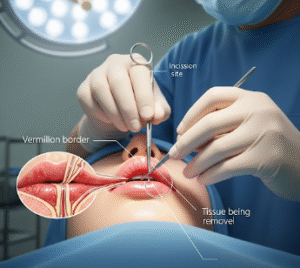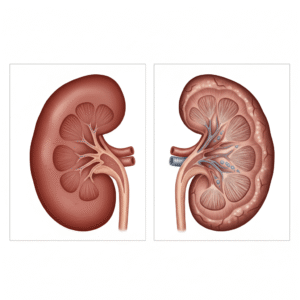What is Dentures (False Teeth)?
Dentures, also known as false teeth, are removable prosthetic appliances designed to replace missing teeth and the surrounding gum tissue. They are made from materials such as acrylic resin, porcelain, flexible polymers, and sometimes metal frameworks, depending on the patient’s needs. Dentures are customized to ensure a natural look, proper function, and comfort.
There are several types of dentures:
✔️ Complete Dentures – Used when all teeth are missing in either the upper or lower jaw.
🔹 Partial Dentures – Used when only a few teeth are missing. They are supported by natural teeth with clasps or precision attachments.
🔸 Implant-Supported Dentures – Dentures anchored by titanium implants placed in the jawbone for added stability.
In Korea, dentures are crafted using advanced digital imaging and 3D printing technology, ensuring a precise fit and natural appearance. Korean dental clinics are globally recognized for combining aesthetic excellence with affordability, attracting thousands of international patients each year.
➡️ Restores smile and chewing ability
➡️ Prevents facial sagging and premature aging caused by tooth loss
➡️ Improves speech and overall oral health
Why It’s Done
Dentures are recommended when natural teeth are lost due to:
✔️ Severe tooth decay that cannot be treated with fillings or crowns
✔️ Advanced gum disease (periodontitis) leading to tooth loss
✔️ Accidents, injuries, or trauma causing broken or missing teeth
✔️ Age-related tooth loss common in elderly patients
Main Benefits:
➡️ Restoring Chewing Function – Patients can enjoy a wider variety of foods, improving digestion and nutrition.
➡️ Improved Speech – Missing teeth often cause slurred speech or lisps; dentures correct this.
➡️ Enhanced Appearance – Dentures restore the fullness of the mouth and prevent the “sunken” look.
➡️ Psychological Benefits – A full smile boosts self-confidence and emotional well-being.
➡️ Maintaining Oral Structure – Dentures help prevent remaining teeth from shifting out of position.
In Korea, dentists emphasize not only functional recovery but also cosmetic appeal, ensuring dentures look natural and harmonious with facial features.
Alternatives
Dentures are popular, but not the only solution for missing teeth. Depending on the patient’s oral health, bone density, and budget, alternatives may include:
⭐ Dental Implants – Titanium posts placed into the jawbone to hold artificial teeth. Permanent, natural-looking, but more expensive.
⭐ Fixed Dental Bridges – Replacement teeth anchored to neighboring natural teeth. Suitable if adjacent teeth are healthy.
⭐ Overdentures – A combination of dentures and implants, offering more stability than traditional dentures but less invasive than full implants.
⭐ Orthodontic Solutions – In certain cases where tooth spacing can be corrected, braces or aligners may be an alternative.
👉 Despite these alternatives, dentures remain one of the most cost-effective, less invasive, and widely accessible solutions, especially for older patients or those not eligible for implants due to bone loss.
Preparation
Before getting dentures, proper preparation ensures the best results. In Korea, the process involves comprehensive consultation and digital planning.
🔹 Dental Examination & Impressions – Dentists take molds of the gums and any remaining teeth.
🔹 Digital Scans & X-rays – Used to evaluate bone structure and jaw alignment.
🔹 Medical History Review – Ensures patient suitability (checking for diabetes, osteoporosis, gum infections, etc.).
🔹 Treatment Plan Discussion – Patients choose between partial, complete, or implant-supported dentures based on needs and budget.
⭐ In cases where teeth need removal, extractions are performed first, and temporary dentures may be provided during healing.
⭐ Patients are counseled about eating habits, cleaning routines, and adjustment periods before the final fitting.
How It’s Done
The process of getting dentures in Korea is systematic and may take several weeks. Typical steps include:
- Initial Consultation & Planning
✔️ Patient’s oral health assessed
✔️ Digital scans, photos, and bite registration recorded - Tooth Extraction (if needed)
➡️ Severely damaged teeth removed
➡️ Healing time varies between 2–6 weeks - Impressions & Bite Registration
🔹 Precise molds and bite alignment ensure natural look and comfort
🔹 Digital 3D modeling often used in Korean clinics - Wax Try-In (Trial Denture)
✔️ Temporary version made in wax to check shape, fit, and appearance
✔️ Adjustments done before final product - Final Fabrication
🔸 Dentures made from acrylic, porcelain, or flexible resin
🔸 Korean labs use CAD/CAM (computer-aided design) for precision - Final Fitting
✔️ Dentures placed in patient’s mouth
✔️ Bite checked, speech tested, and minor adjustments performed - Follow-up Adjustments
➡️ Regular visits ensure comfort
➡️ Relining may be done if gums shrink
Recovery
The adaptation process is gradual. Korean dentists emphasize patient education and follow-ups to help with adjustment.
✔️ Initial Discomfort – Patients may feel gum soreness, excessive saliva, or difficulty chewing for 1–2 weeks.
✔️ Dietary Adjustments – Soft foods recommended initially; tougher foods reintroduced gradually.
✔️ Speech Practice – Reading aloud helps train tongue movement. Lisping usually improves within weeks.
✔️ Long-Term Care – Regular dental visits ensure dentures remain comfortable and effective.
⭐ Most patients in Korea adapt within 3–6 weeks
⭐ With proper care, dentures last 5–10 years before replacement or relining
Complications
Although safe, dentures may cause minor issues:
⚠️ Gum Irritation – Caused by friction or ill-fitting dentures.
⚠️ Difficulty Chewing – Especially hard or sticky foods.
⚠️ Speech Problems – Temporary adjustment issues.
⚠️ Bone Resorption – Jawbone shrinkage over time may loosen dentures.
⚠️ Oral Infections – If hygiene is not maintained, fungal infections (like thrush) can occur.
➡️ In Korea, modern digital fitting techniques and premium lightweight materials reduce these complications significantly. Patients also receive detailed cleaning instructions to prevent infections.
Treatment Options in Korea
Korea has emerged as a global leader in dental prosthetics due to advanced technology, affordable prices, and skilled specialists.
🏥 Advanced Technology – Clinics use digital smile design, CAD/CAM, and 3D printing labs for precise results.
🏥 Expert Prosthodontists – Many Korean dentists are internationally trained, ensuring world-class care.
🏥 Affordability – Dentures in Korea cost 40–70% less than in the US or Europe.
🏥 Medical Tourism Support – Translation services, airport pickup, and complete dental travel packages are offered.
Approximate Costs in Korea:
✔️ Complete Dentures → $900 – $2,000 per arch
✔️ Partial Dentures → $500 – $1,200
✔️ Implant-Supported Dentures → $6,000 – $10,000 depending on implant number
👉 Korean clinics also provide express denture services where complete dentures can be delivered within 48–72 hours for international patients with limited time.
Conclusion
Dentures (false teeth) remain one of the most practical and effective solutions for restoring missing teeth. They not only restore functionality but also improve aesthetics and quality of life.
In Korea, patients benefit from:
✔️ State-of-the-art technology ensuring perfect fit and natural look
✔️ Affordable pricing compared to Western countries
✔️ Skilled prosthodontists with global recognition
✔️ Medical tourism support, making treatment smooth and convenient
Whether you require full dentures, partial dentures, or implant-supported dentures, Korea provides world-class options tailored to every budget and lifestyle. Choosing dentures in Korea means gaining back your smile, confidence, and quality of life with care that is both advanced and affordable.

